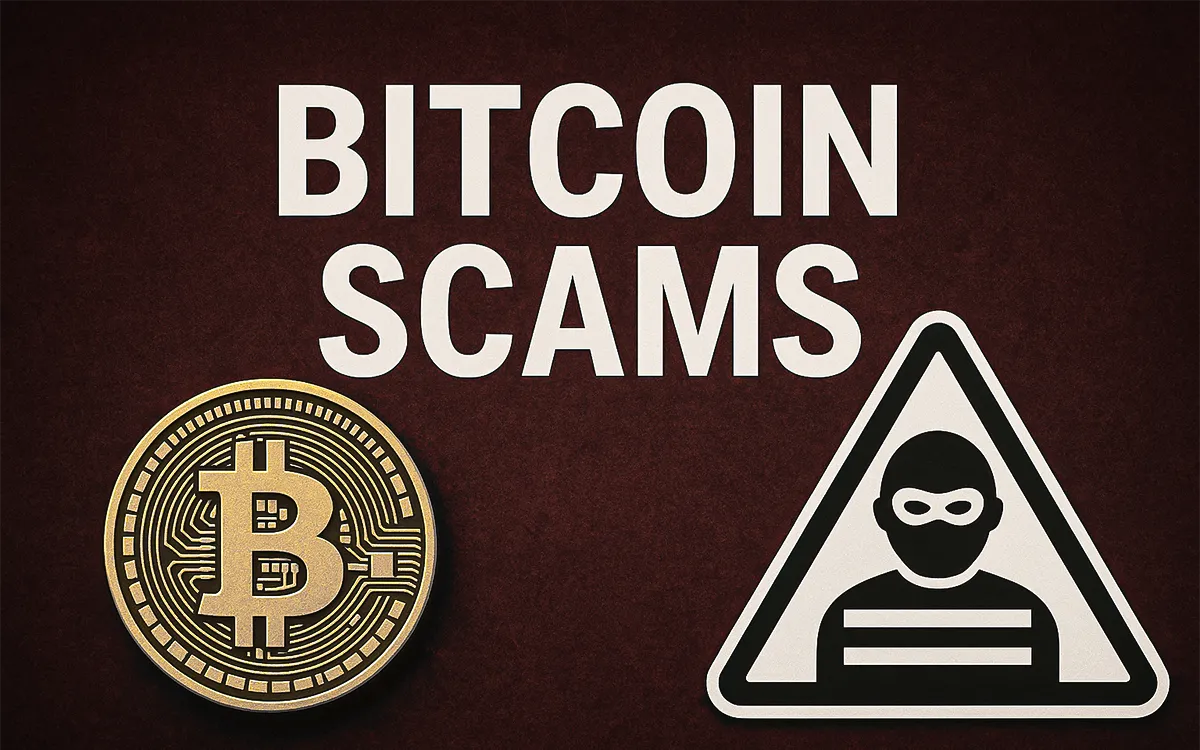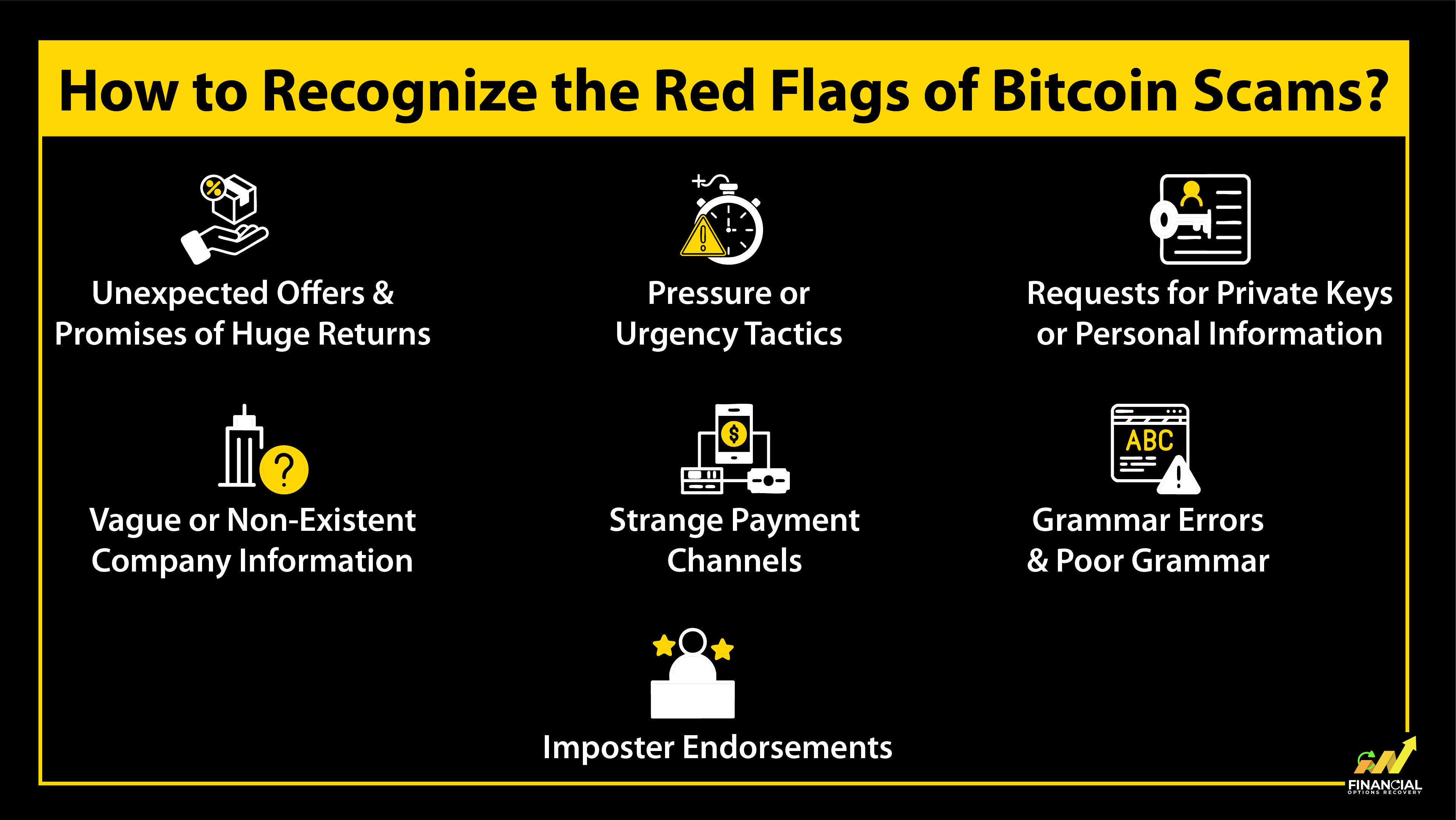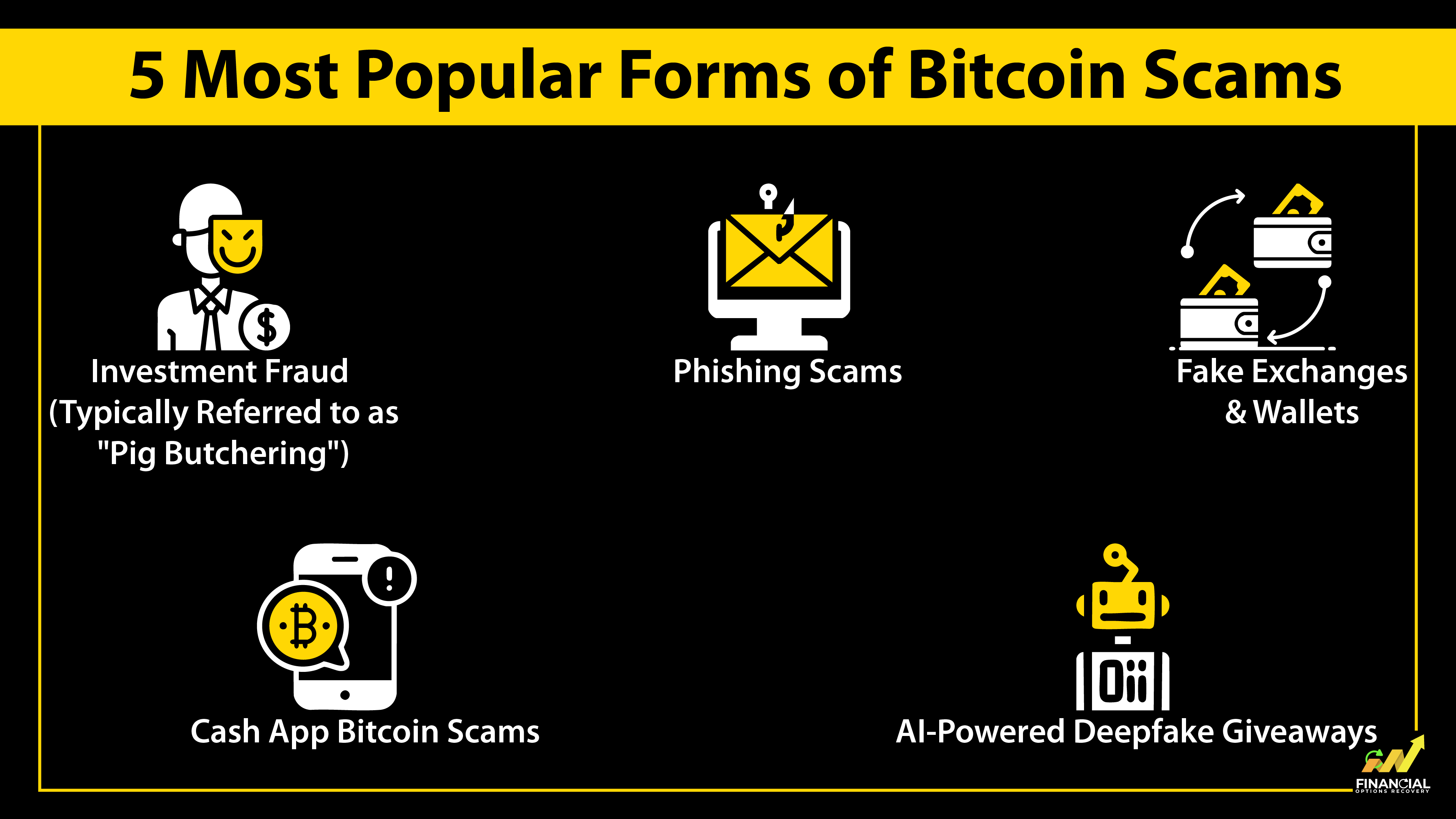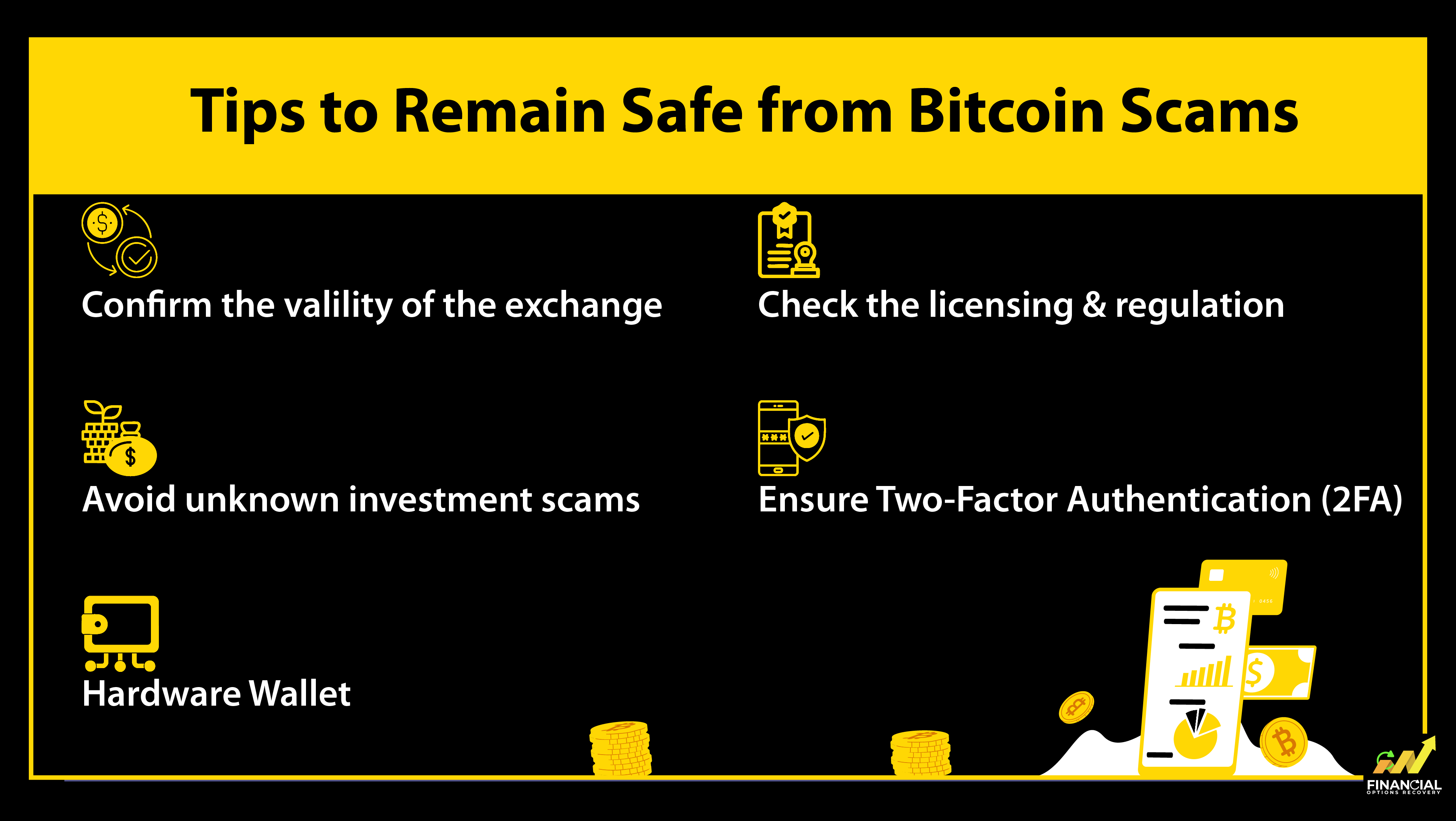
Thinking about investing in Bitcoin? Or maybe you already have?
As exciting as the world of crypto can be, it’s also a favorite playground for scammers. Every day, people lose thousands of dollars to fake investment platforms, phishing attacks, and imposters posing as trusted platforms or advisors. And the worst part? These scams are becoming increasingly difficult to spot.
That's why it is so important to stay informed.
This guide helps you recognize the red flags, avoid common traps, and shows you how to recover your money if you have already been trapped.
Whether you are new to crypto or just want to play it safe, this guide is here to educate individuals such as yourself about Bitcoin scams so that you can protect yourself and your hard-earned money.
Table of Contents
Is Bitcoin a scam? This is one of the most asked questions, but unfortunately, it has arisen from a misunderstanding. So, it's critical to understand the distinction between "Bitcoin is a scam" and "people are victims of Bitcoin scams." Bitcoin itself is a genuine, decentralized digital currency with various applications. It's a technological innovation, a method of sending money to others straightaway, and for some, a means of value storage. It operates on a public and traceable ledger known as the blockchain.
Bitcoin’s legal purpose is frequently overshadowed by its misuse by criminals. Its decentralizing nature and the fact that it does not directly reveal your name may make it appealing to scammers, giving the impression of an untouchable method to facilitate criminal activity. But as we will see in this article, the notion that it is untraceable is usually a false claim.
In simple terms, Bitcoin scams are smart deceptions that attempt to trick individuals into giving away their Bitcoin or other cryptocurrencies. It is typically accomplished with the use of high returns, urgency, or circulating false investment schemes. The scams benefit from our hopeful wishes for fast money and the generally complex nature of cryptocurrency to catch unsuspecting victims.
The actual problem is not Bitcoin, but the scammers who use this new technology and the public's ignorance of them to scam people.
Being on your toes is your best protection. Here are some of the red flags of Bitcoin scams:

With crypto scams only getting more fraudulent in 2025, knowledge of frequent schemes is important to prevent monetary loss. Below are the most popular forms of Bitcoin scams preying on users these days:

1. Investment Fraud (Typically Referred to as "Pig Butchering"):
These include scammers constructing artificial relationships, typically romantic ones, to gain your trust. They then ask victims to invest in fictitious platforms with nonexistent "profits." Once sufficient funds have been deposited, the scammer vanishes. One such case in California resulted in a victim losing $30 million.
2. Phishing Scams:
Another huge threat, phishing, relies on imposter emails, sites, or messages resembling legitimate exchanges or wallets. They target stealing your login credentials, private keys, or seed phrases. Be careful of unfamiliar website addresses, unusual requests, or sender email addresses that don't look right.
3. Fake Exchanges & Wallets:
Scammers develop professional-looking websites or apps that offer good returns. After depositing your Bitcoin, withdrawals are disabled, and the website is gone. Always install apps through authentic app stores and verify site domain names extremely carefully.
4. Cash App Bitcoin Scams:
The scam affects Cash App crypto feature users. Scammers pose as customer support or provide "Bitcoin doubling" schemes. Scammers typically share fake QR codes, phishing links, or fake giveaways. Users complain of being hastily asked to send Bitcoin or provide login information under the guise of resolving account problems. Learn how to protect yourself in our detailed blog on Bitcoin Cash App Scams.
5. AI-Powered Deepfake Giveaways:
In 2025, fraudsters are employing artificial intelligence to make impersonated videos of popular individuals such as Elon Musk or Donald Trump, which entice Bitcoin giveaways. As soon as you transfer crypto, they are gone. AI also enables fake profiles and computerized calls, and the scams become more difficult to spot.
Be cautious; it is your best defense to recognize these tactics.
To really get a sense of the destructive power of Bitcoin scams, it's important to listen to the victims themselves. Picture forming a close, intimate relationship with someone online, feeling as though you've found love, before that trust is broken, and your financial future starts looking dark. This is the bitter experience of many, and one account shows just how devious these scams are.
Take the example of Rita, a 66-year-old Montanan, as reported by the FBI's Salt Lake City Field Office. Rita, who had been lonely following a divorce, was contacted by someone claiming to be a celebrity on social media. The impersonator toyed with her emotions, taking her further into the fake romance.
Then followed the money requests, with a believable reason, always accompanied by a request for payment in Bitcoin. Rita, trapped in the web of emotions, sent around $90,000 worth of Bitcoin. Although the financial loss was staggering, Rita stresses that the worst pain was the emotional one.
The anonymity of Bitcoin tends to make it the payment method of choice for these thieves because it provides them with the ability to transfer funds quickly and vanish, leaving the victims with little means of recourse and a long recovery path. From here, the most asked question arises.
This is a common misunderstanding that fraudsters mostly use to their advantage. Though Bitcoin transactions are usually said to be anonymous, they are in fact pseudonymous, and this implies that they are possible to still be linked back to internet identities. Although you cannot link it to a particular transaction directly, all Bitcoin deals are recorded in a public journal also referred to as the blockchain.
This public immutable record allows competent blockchain forensic specialists to track the trail of stolen money. This can be done by tracking the consistent transactions, tracking the addresses, and employing other sophisticated tracking methods that allow one to track the money even when fraudsters attempt to launder the coins by mixing or tumbling the money with the aim of hiding. This traceability is the key component of recovering from Bitcoin scams.
The good news is that yes, it is frequently possible to get back money lost to a Bitcoin scam, although it can be a frustrating and complex process. Most people entertain the myth that when Bitcoin is sent, it's irretrievable forever. Although Bitcoin transactions are irreversible on the blockchain, recovery isn't out of the question.
Below are the important steps victims must take:
At Financial Options Recovery, we know that handling the aftermath of a scam can be draining emotionally and daunting technically.Our firm offers a unique and comprehensive recovery process:
Though each situation is different and recovery times can differ, patience and close cooperation with experts are key. Be cautious of any "recovery service" that guarantees immediate success or requests upfront fees, as these are usually scams themselves.
It is always best to prevent. Here is a checklist that guides you to keep yourself and your Bitcoin safe:

Recovering from a Bitcoin scam can feel overwhelming, but you're not in this alone. Whether you're just beginning to process what happened or looking for the right support, taking the first step matters.
Reach us out today for a free consultation your path to recovery can begin with a simple conversation.
Bitcoin itself is a legitimate, decentralized digital currency. However, it is often misused by scammers to commit fraud. The scams are real, not Bitcoin itself.
Warning signs include unexpected requests for your PIN or money, promises of unrealistic returns, pressure to act quickly, or requests to send Bitcoin to unknown individuals for "investment."
Yes, it is often possible to recover stolen Bitcoin through professional blockchain tracing and legal actions, though it requires specialized expertise and immediate action.
Absolutely. While Bitcoin transactions are pseudonymous, they are recorded on a public ledger (the blockchain), allowing skilled forensic investigators to trace the flow of funds.
The recovery timeline varies greatly depending on the complexity of the scam, the amount stolen, and how quickly exchanges and legal processes respond. It can range from weeks to several months.